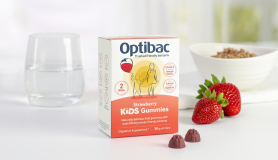Migraine support charities are quick to point out one of the most common misconceptions about migraine is that ‘it’s just a headache’. In fact, migraine attacks can last from four to 72 hours and symptoms may include nausea and vomiting, visual disturbances known as ‘aura’, and tingling and numbness in the limbs. Other common symptoms are sensitivity to things in the environment such as photophobia (sensitivity to light), phonophobia (sensitivity to noise), and osmophobia (sensitivity to smells). The pain alone can be debilitating, with sufferers unable to perform everyday tasks as they might be able to with a headache.
Starting the healing journey
We asked natural nutritionist Kirsten Chick from Connect with Nutrition for her advice for migraine sufferers. First off, she outlines some key culprits in the migraine picture. These include dehydration, an overloaded liver, magnesium deficiency, a disrupted copper/ zinc/ manganese balance in the brain, low omega 3 fatty acids, or a possible food allergy which would have to be ruled out.
“Omega 3 fatty acids, zinc and magnesium are needed to make prostaglandins and many hormones, and so are in great demand during puberty, menstruation, pregnancy and menopause,” Kirsten says. “The contraceptive pill also depletes zinc and essential fatty acids.” It is a depletion of these fatty acids, zinc and magnesium that can contribute to migraine. She goes on to say that adrenal activity – i.e. experiencing stress – has a similar effect on our vital stores of these anti-inflammatory nutrients: “So burning the candles at both ends, high stress lifestyles, excessive exercise, unresolved emotions and issues, and not finding time to rest and recover etc. can all contribute.”
Overloaded liver
An overloaded liver is also often part of the migraine picture. A person’s liver can become overloaded by having to process fats and transfats, having to process excess toxins such as pesticides in our food, and helping to deal with blood sugar level spikes and crashes. It is these spikes and crashes, Kirsten remarks, that migraine sufferers want to avoid: “Migraines often occur when blood sugar drops, so it can be really helpful to avoid this by eating little and often, focussing on protein especially earlier in the day, avoiding sugars, starchy foods and grains and drinking good amounts of water through the day.”
Kirsten advises against beginning a drastic detox programme because it will suddenly give the liver more work to do and could cause a drop in blood sugar. Instead, she recommends easing into a detox programme gently, perhaps supporting the detox with castor oil packing to the liver and some gentle enemas. Green juices and powders can also help support, nourish and cleanse the liver. You can find further articles and videos on cleansing and healthcare here.
Using supplements
Other supplements Kirsten might advise include a 400mg daily dose of Riboflavin or vitamin B5 which has been shown to reduce the incidence of migraines. “Magnesium citrate supplementation alongside a good quality fish or krill oil may be useful,” she suggests. “Zinc and/or manganese supplementation may also be a good next step.”
To find out more about Kirsten Chick, visit Connect with Nutrition, or to attend one of her life-enhancing yoga and nutrition retreats with Hayley North, see Bloom Holistic Retreats.







